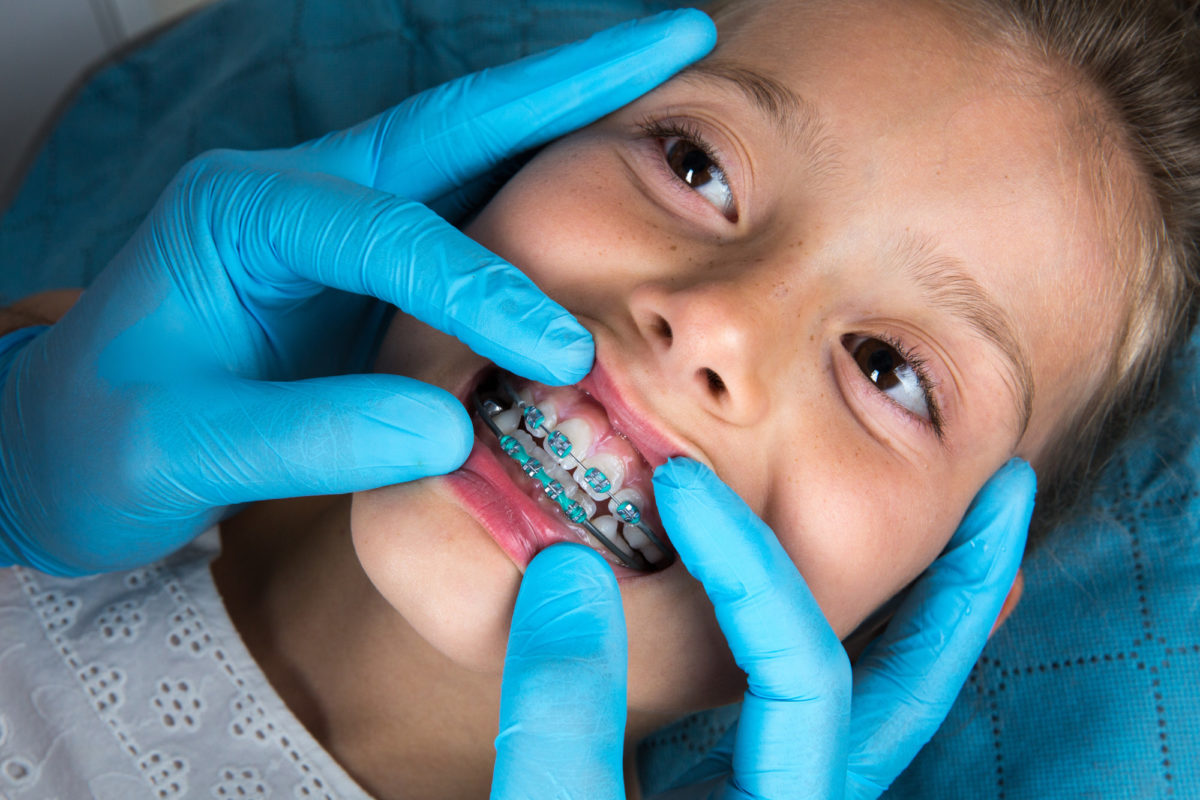How to Choose the Right Pediatric Dentist for Your Child
As a parent, you want the best for your child’s health, including their oral health. Choosing the right pediatric dentist is crucial to ensuring that your child receives the best possible care for their teeth and gums. Pediatric dentists specialize in treating children from infancy through adolescence, and they have additional training and experience in working with young patients.
A. Explanation of why choosing the right pediatric dentist is important for your child’s oral health.
Children have unique dental needs that require specialized care, and choosing the right pediatric dentist can have a significant impact on your child’s oral health. Pediatric dentists not only provide routine dental exams and cleanings but also offer preventive care, diagnose and treat dental problems, and monitor the growth and development of your child’s teeth and jaw.
Early childhood dental visits are crucial for detecting and addressing any dental issues before they become more serious. Regular dental check-ups can also help your child develop good oral hygiene habits that will last a lifetime.
B. Brief overview of the factors to consider when choosing a pediatric dentist.
When choosing a pediatric dentist, there are several factors to consider. Qualifications such as education, training, and experience are important, as well as specializations and areas of expertise. You should also consider practical considerations such as location, office hours, and insurance and payment options.
It’s essential to research and evaluate potential pediatric dentists carefully, which may include asking for referrals, reading online reviews, and scheduling a consultation. Asking questions about the dentist’s approach to working with children and involving parents in their child’s dental care can also help you make an informed decision.
Overall, choosing the right pediatric dentist is critical to your child’s oral health and wellbeing. By taking the time to find a qualified and experienced pediatric dentist who is a good fit for your family, you can ensure that your child receives the best possible dental care.
Qualifications to Look for in a Pediatric Dentist
When choosing a pediatric dentist for your child, it’s important to consider their qualifications. Qualifications can provide insight into a dentist’s level of education, training, experience, and specializations. Here are some key qualifications to look for when choosing a pediatric dentist:
A. Education and training
Pediatric dentists are required to complete four years of dental school and an additional two years of residency training in pediatric dentistry. This specialized training focuses on the unique needs of children, including child psychology, growth and development, and behavior management. When researching pediatric dentists, be sure to check their education and training credentials.
B. Licensing and certifications
All dentists must be licensed in the state in which they practice. Licensure ensures that dentists meet specific standards of practice and have passed state board exams. Pediatric dentists may also have additional certifications, such as board certification from the American Board of Pediatric Dentistry. This certification demonstrates a dentist’s commitment to excellence in pediatric dentistry and ongoing education and training.
C. Years of experience
Experience can be an important factor to consider when choosing a pediatric dentist. A dentist with many years of experience may have treated a wide variety of dental issues in children and developed a high level of expertise. However, less experienced dentists may also provide excellent care, so consider experience in conjunction with other qualifications.
D. Specializations and areas of expertise
Pediatric dentists may have additional specializations or areas of expertise, such as orthodontics, sedation dentistry, or treating children with special needs. If your child has a specific dental issue or needs specialized care, look for a pediatric dentist with the appropriate training and experience.
Overall, a pediatric dentist’s qualifications can provide valuable insight into their level of expertise and ability to provide quality care for your child’s oral health. Consider these qualifications carefully when researching potential pediatric dentists.
Considerations for Choosing a Pediatric Dentist
In addition to a dentist’s qualifications, there are several practical considerations to keep in mind when choosing a pediatric dentist for your child. These factors can affect your child’s comfort and convenience during dental visits, as well as your own peace of mind as a parent. Here are some key considerations to keep in mind:
A. Location and accessibility
Choosing a pediatric dentist who is conveniently located can make dental visits more manageable for you and your child. Consider the distance from your home, your child’s school, and any other locations you frequent regularly. Additionally, ensure that the dental office is accessible for your child, whether they use a wheelchair or have other mobility needs.
B. Hours of operation and scheduling
Pediatric dentists may have varying hours of operation, and some may offer weekend or evening appointments to accommodate busy schedules. Consider the hours of operation and scheduling options when choosing a dentist. Additionally, check to see if the dentist offers emergency dental services or can refer you to a nearby emergency dental clinic.
C. Office environment and atmosphere
The office environment and atmosphere can play a significant role in your child’s comfort during dental visits. Look for a pediatric dental office that is clean, child-friendly, and welcoming. A pediatric dentist who has experience working with children will have an office environment that is designed to help children feel comfortable and relaxed.
D. Insurance and payment options
Dental care can be expensive, so it’s essential to consider insurance and payment options when choosing a pediatric dentist. Check to see if the dentist accepts your insurance plan and if they offer payment plans or financing options. Some dentists may also offer discounts for multiple family members or for paying in full at the time of service.
Overall, practical considerations play a significant role in choosing a pediatric dentist for your child. By considering location, hours of operation, office environment, and insurance and payment options, you can find a dentist that is convenient, comfortable, and affordable for your family.
Researching and Evaluating Potential Pediatric Dentists
Now that you know what qualifications and considerations to look for in a pediatric dentist, it’s time to start researching and evaluating potential candidates. Here are some effective ways to find the right pediatric dentist for your child:
A. Asking for referrals from family, friends, and healthcare providers
One of the best ways to find a reputable pediatric dentist is to ask for referrals from people you trust. Talk to family, friends, and your child’s healthcare providers to see if they have any recommendations. They can provide valuable insights into their personal experiences with the dentist, including the quality of care and their level of comfort during dental visits.
B. Reading online reviews and ratings
Online reviews and ratings can also be helpful when researching potential pediatric dentists. Check websites like Google, Yelp, and Healthgrades to read reviews from other patients and parents. While not all reviews may be accurate or trustworthy, they can provide a general sense of a dentist’s reputation and quality of care.
C. Checking the dentist’s website and social media pages
A pediatric dentist’s website and social media pages can offer valuable information about their practice, including their qualifications, services, and office environment. Take some time to browse the dentist’s website and social media pages to learn more about their approach to pediatric dental care.
D. Scheduling a consultation or initial appointment
After narrowing down your list of potential pediatric dentists, consider scheduling a consultation or initial appointment. This will give you an opportunity to meet the dentist in person, tour the office, and ask any questions you may have. During the appointment, pay attention to the dentist’s communication style, demeanor, and ability to connect with your child.
By utilizing these research and evaluation methods, you can find a pediatric dentist who meets both your practical and personal preferences. Remember to take your time when choosing a dentist, as it’s an important decision that can impact your child’s oral health and overall wellbeing.
Questions to Ask When Choosing a Pediatric Dentist
When choosing a pediatric dentist for your child, it’s important to ask questions that can help you gauge their approach to pediatric dental care. Here are some key questions to ask during a consultation or initial appointment:
A. How do you approach working with children?
A pediatric dentist should have a gentle and patient approach to working with children. Ask about their experience working with children and their approach to making dental visits a positive and comfortable experience. Look for a dentist who has experience working with children of different ages and personalities, and who can offer age-appropriate dental care and education.
B. What are your office policies and procedures for emergencies and after-hours care?
Emergencies can happen at any time, and it’s important to know what your pediatric dentist’s office policies and procedures are for handling them. Ask about their availability for emergency care, and what steps they take to ensure that patients receive prompt and appropriate care in the event of an emergency.
C. What types of sedation or pain management options do you offer?
For some children, dental visits can be stressful or uncomfortable. Ask about the types of sedation or pain management options the pediatric dentist offers to help alleviate anxiety and discomfort. This can include nitrous oxide (laughing gas), oral sedation, or IV sedation, depending on the child’s age and individual needs.
D. How do you involve parents in their child’s dental care?
Pediatric dentists should involve parents in their child’s dental care and provide education and guidance on proper oral hygiene and nutrition. Ask about the dentist’s approach to involving parents in their child’s dental care, and what resources they provide to help parents support their child’s oral health.
By asking these important questions, you can gain a better understanding of a pediatric dentist’s approach to dental care and determine if they are the right fit for your child. Remember to be open and honest about your concerns and expectations, and to choose a dentist who can provide the personalized care and attention your child needs.
Conclusion
Choosing the right pediatric dentist for your child is an important decision that can impact their oral health and overall wellbeing. By considering the qualifications, considerations, and questions outlined in this article, you can find a dentist who meets both your practical and personal preferences.
Remember to prioritize a dentist’s education, licensing, experience, and areas of expertise, as well as factors such as location, office environment, and insurance and payment options. Additionally, take advantage of resources such as referrals, online reviews, and consultations to evaluate potential dentists and make an informed decision.
Regular dental check-ups are also crucial for maintaining your child’s oral health. The American Academy of Pediatric Dentistry recommends that children see a dentist by their first birthday and receive regular check-ups every six months. These check-ups can help prevent dental problems and identify any issues early on, when they are easier and less expensive to treat.
By choosing a qualified and compassionate pediatric dentist and prioritizing regular dental check-ups, you can help your child maintain a healthy and happy smile for years to come.






